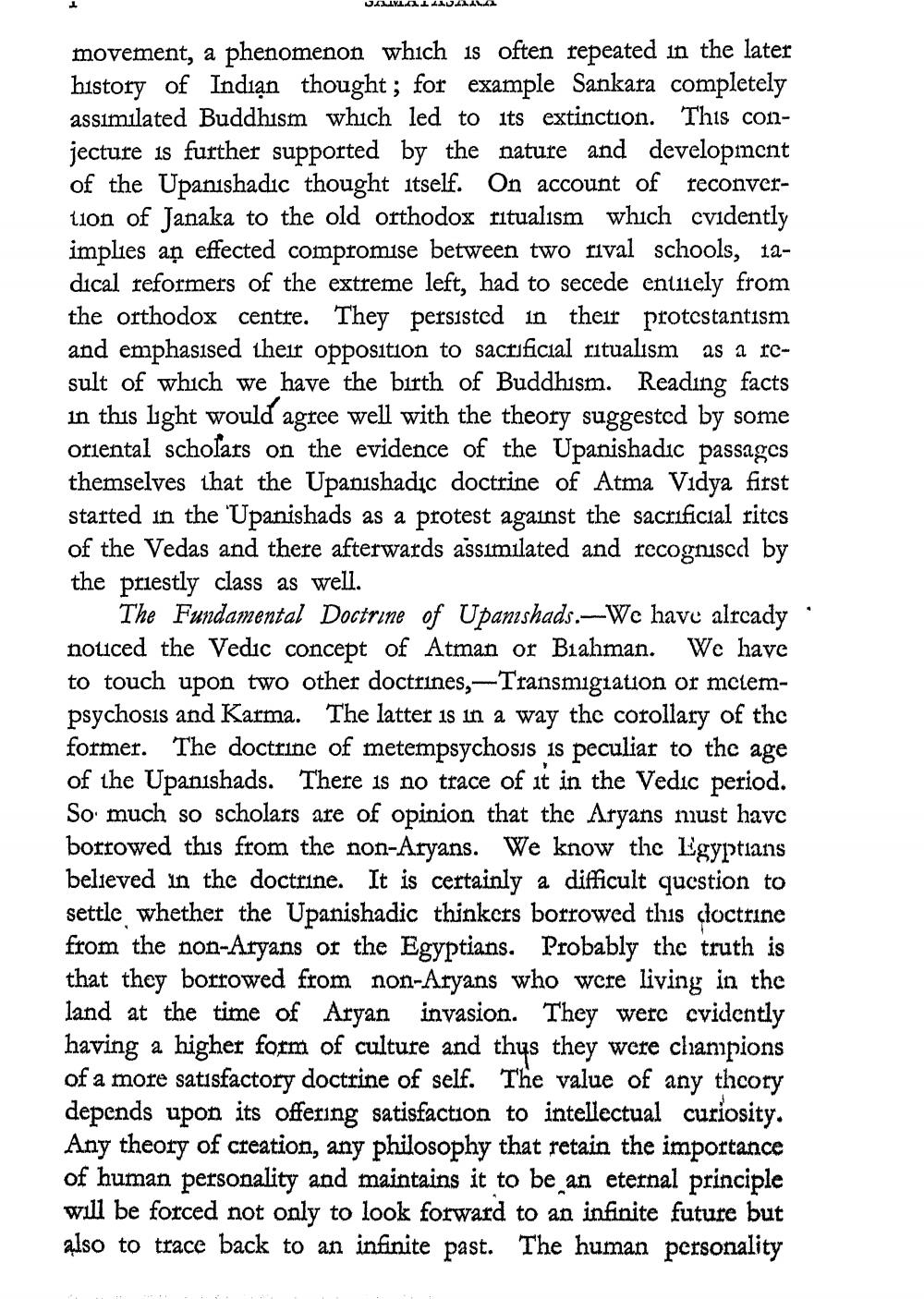________________
movement, a phenomenon which is often repeated in the later history of Indian thought; for example Sankara completely assimilated Buddhism which led to its extinction. This conjecture is further supported by the nature and development of the Upanishadic thought itself. On account of reconvertion of Janaka to the old orthodox ritualism which evidently implies an effected compromise between two rival schools, 1adical reformers of the extreme left, had to secede entirely from the orthodox centre. They persisted in their protestantism and emphasised their opposition to sacrificial ritualism as a result of which we have the birth of Buddhism. Reading facts in this light would agree well with the theory suggested by some oriental scholars on the evidence of the Upanishadic passages themselves that the Upanishadic doctrine of Atma Vidya first started in the Upanishads as a protest against the sacrificial rites of the Vedas and there afterwards assimilated and recognised by the priestly class as well.
The Fundamental Doctrine of Upanishads.-We have already noticed the Vedic concept of Atman or Biahman. We have to touch upon two other doctrines,-Transmigration or mctempsychosis and Karma. The latter is in a way the corollary of the former. The doctrine of metempsychosis is peculiar to the age of the Upanishads. There is no trace of it in the Vedic period. So much so scholars are of opinion that the Aryans must have borrowed this from the non-Aryans. We know the Egyptians believed in the doctrine. It is certainly a difficult question to settle whether the Upanishadic thinkers borrowed this doctrine from the non-Aryans or the Egyptians. Probably the truth is that they borrowed from non-Aryans who were living in the land at the time of Aryan invasion. They were evidently having a higher form of culture and thus they were champions of a more satisfactory doctrine of self. The value of any theory depends upon its offering satisfaction to intellectual curiosity. Any theory of creation, any philosophy that retain the importance of human personality and maintains it to be an eternal principle will be forced not only to look forward to an infinite future but also to trace back to an infinite past. The human personality




